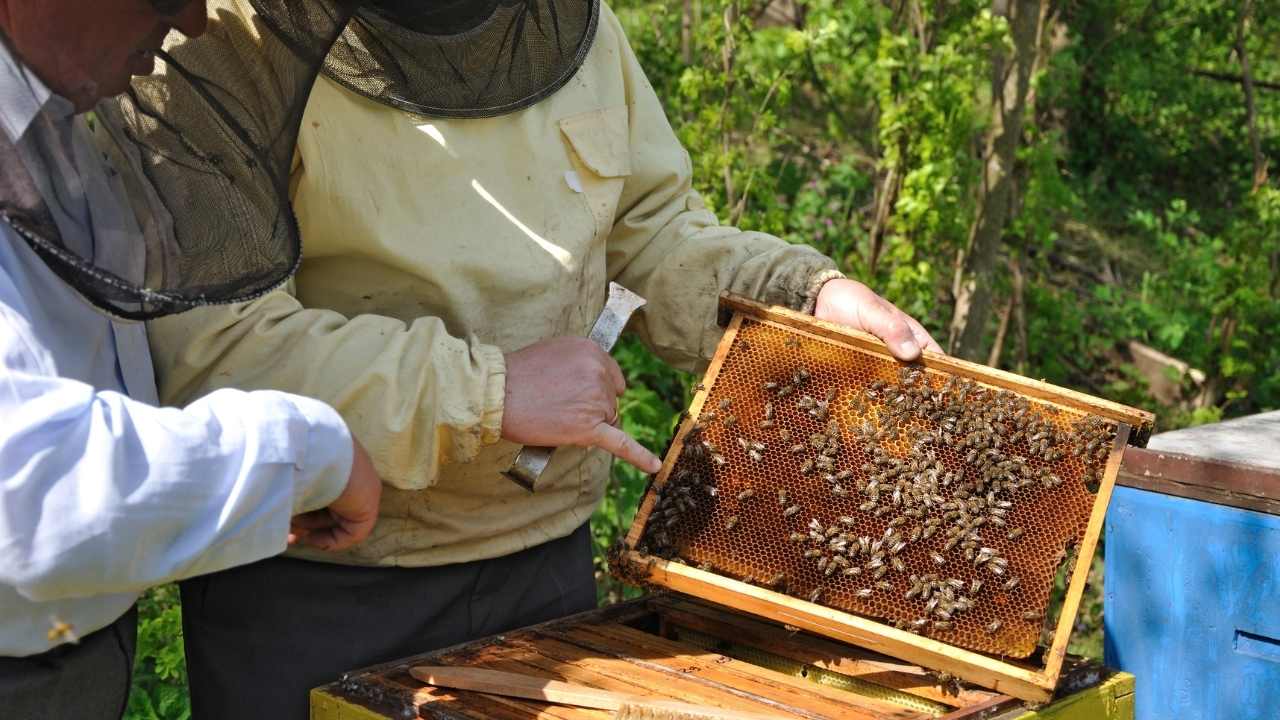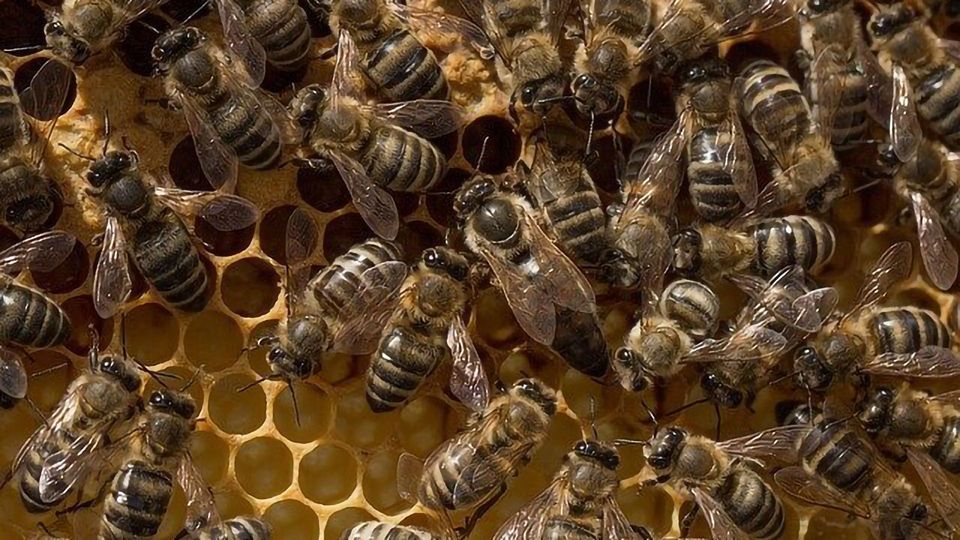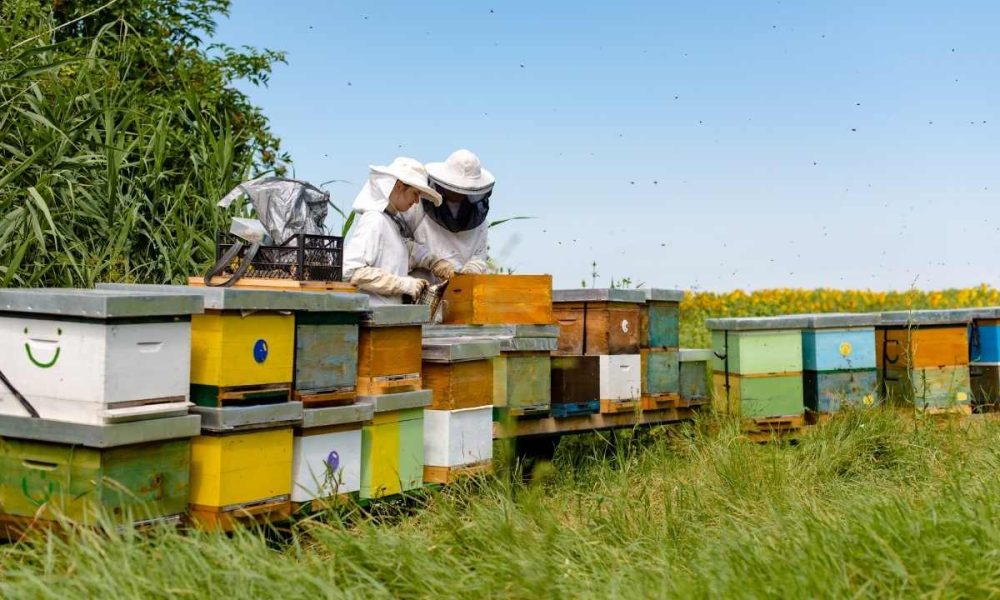
Did you know that bees are responsible for pollinating 70% of the world’s crops? Without them, our food supply would be severely threatened. However, bee populations have been declining due to habitat loss and pesticide use. This is where you come in – by taking up a beekeeping hobby, not only do you get to enjoy delicious honey, but you also become an important contributor to ecosystem health.
Beekeeping has numerous benefits for both the environment and yourself. Not only do bees pollinate plants and flowers, but they also help maintain biodiversity by spreading pollen from one species to another. Additionally, beekeeping can be a sustainable source of income as well as a way to connect with your community through sharing honey or starting educational programs about the importance of bees. In this article, we will explore the benefits of beekeeping in depth and provide tips on how to get started while ensuring the health and safety of your bees.
The Importance of Bees in Our Ecosystem
Bees play a critical role in maintaining the balance of our ecosystem. Without them, we would see a significant decline in plant and animal diversity. Unfortunately, bee declines have been on the rise due to habitat loss, pesticide use, and climate change. This is why pollinator conservation has become such an important issue.
Pollinators like bees are responsible for fertilizing over 75% of the crops we eat. This means that without bees, we would have a much harder time producing food. Additionally, bees help maintain biodiversity by pollinating wildflowers and other plants that provide habitats and food sources for other animals. The decline of bees could cause a ripple effect throughout the entire ecosystem, affecting everything from soil quality to wildlife populations. It’s essential that we do what we can to protect these crucial creatures and their habitats.
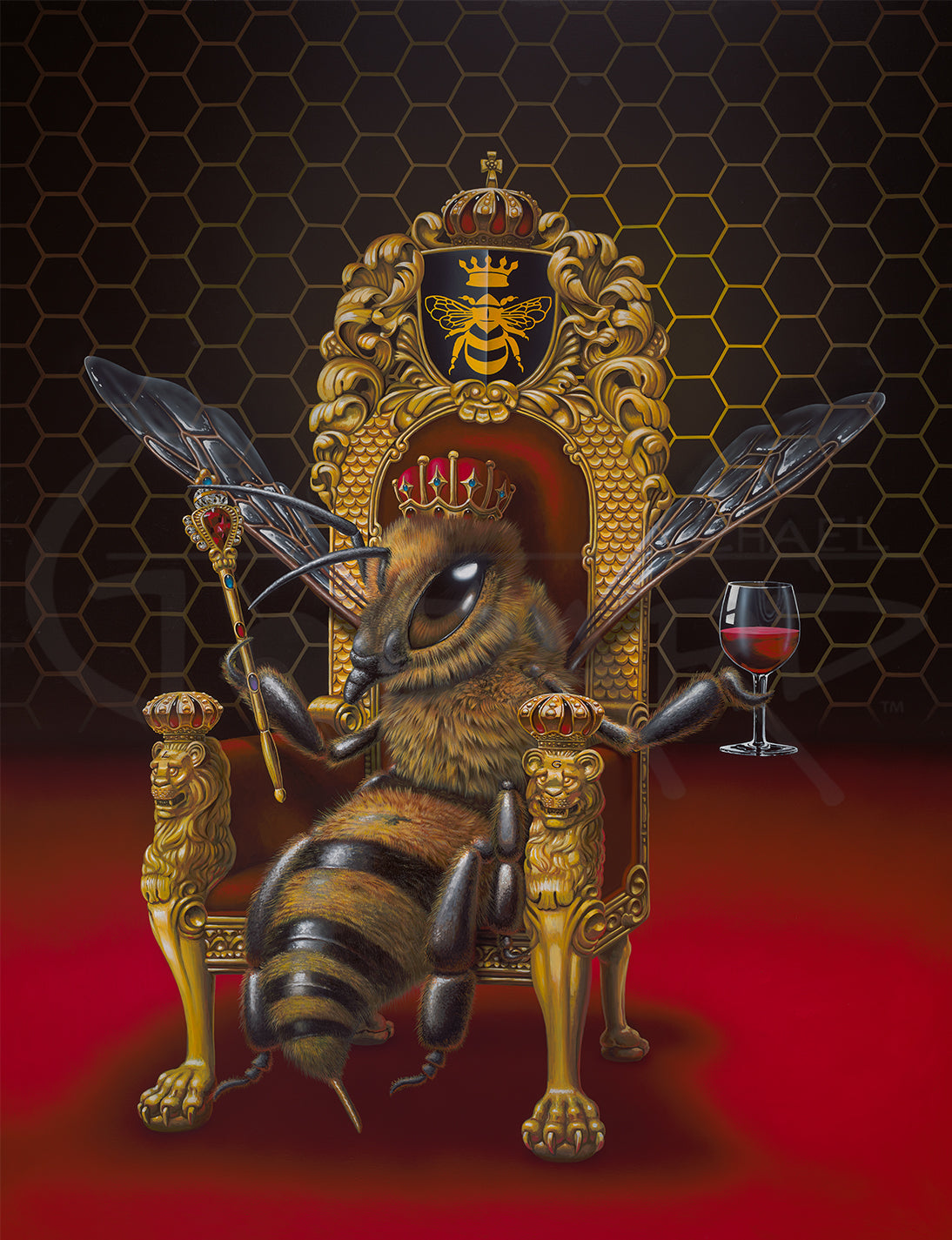
Beekeeping not only provides us with honey but also has many benefits for the environment and our local ecosystems.
Benefits of Beekeeping
Did you know that getting into beekeeping can have a positive impact on the environment, beyond just providing tasty honey? Here are three benefits of beekeeping that can help boost ecosystem health:
- Pollination: As bees fly from flower to flower collecting nectar, they also transfer pollen grains which helps in the fertilization and growth of plants. Beekeepers can play a significant role in supporting local agriculture by helping increase crop yields through their beehives.
- Biodiversity: Urban beekeeping is becoming increasingly popular as it provides an opportunity for people to create small havens for bees in urban areas. This not only supports the survival of local species but also contributes to increasing biodiversity within cities.
- Conservation: Honey production is not the only benefit of keeping bees. By creating suitable habitats for bees, beekeepers contribute to conservation efforts by ensuring their survival and protection.
By taking up beekeeping, you can contribute to improving the environment while enjoying all its sweet rewards. Now that you understand the significance of this hobby let’s explore how you can get started with your very own beehive.
Getting Started with Beekeeping
Embarking on the journey of starting your own beehive can be an enriching experience, providing you with an opportunity to actively contribute towards the betterment of the environment. However, before diving into beekeeping, it is important to choose the right equipment and resources for your hive. This includes purchasing a hive body, frames, protective gear such as gloves and a veil, a smoker for calming bees during inspections, and tools for extracting honey.
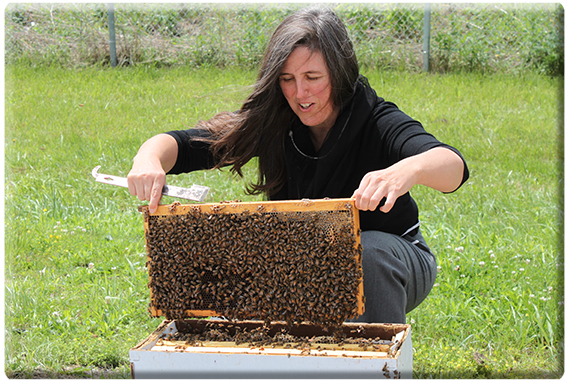
When it comes to finding resources, there are plenty of options available. Local beekeeping associations offer classes and workshops that teach the fundamentals of beekeeping. Additionally, online forums provide support from experienced beekeepers who can answer questions about best practices and common problems. With the right equipment and resources in hand, you’ll be ready to start your own beehive and help boost biodiversity in your community.
As you begin your beekeeping journey by choosing equipment and finding resources, it’s important to keep in mind how you can support bee health in your area. One way is by planting native flowers that provide bees with nectar throughout their entire lifespan. By doing so, you’ll not only benefit your own hive but also contribute towards creating a healthier ecosystem for all pollinators.
Supporting Bee Health
To ensure your hive thrives, it’s crucial that you take steps to promote the well-being of pollinators in your area by planting flowers and providing a diverse range of food sources. Bees require nectar and pollen from various types of flowers to stay healthy. You can help support their nutritional needs by planting a mixture of native wildflowers, herbs, and trees around your bee yard or garden. This also helps to provide habitat for other beneficial insects.
Beekeeping practices have a significant environmental impact on the surrounding ecosystem. By promoting biodiversity, you can reduce the negative effects of beekeeping on local flora and fauna. Here are three ways to support bee health:
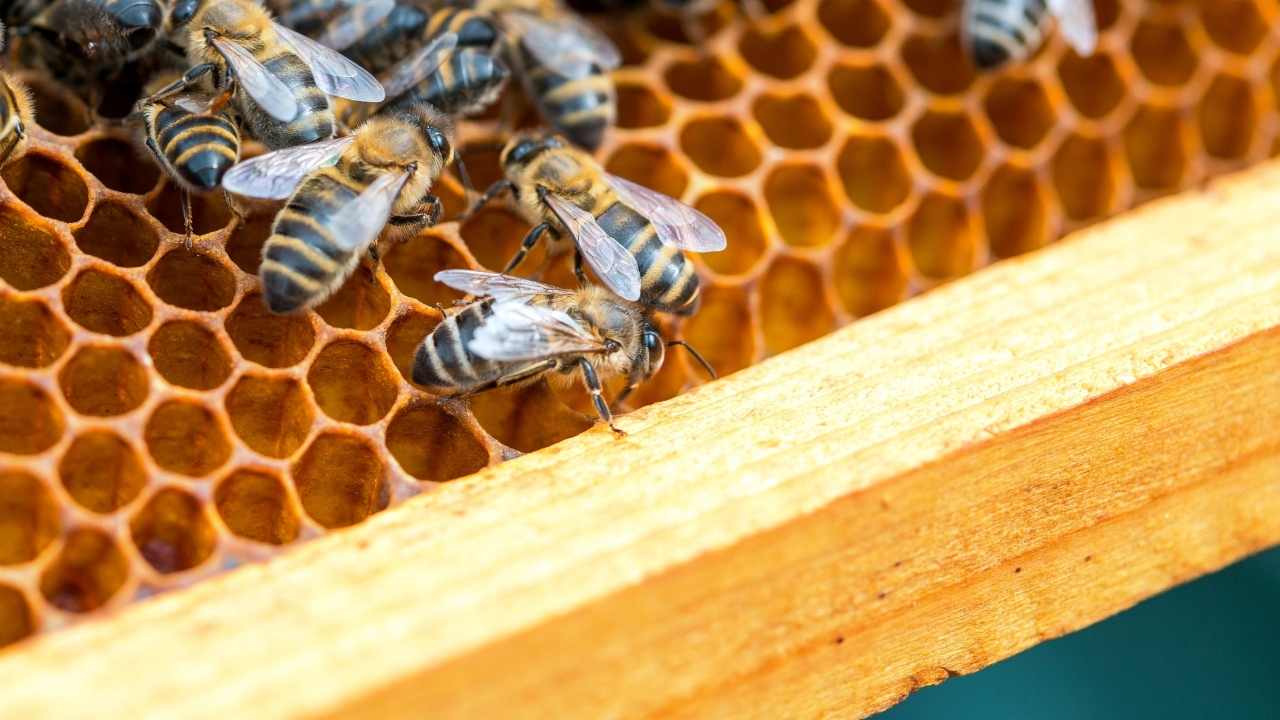
- Plant native plants that provide ample food sources for bees.
- Avoid using pesticides or herbicides in your garden or near your hives.
- Provide fresh water sources for bees – they need it for cooling down their hives.
By taking these steps, you’re not only helping your own colony thrive but also contributing to the overall health of local ecosystems. It’s important to recognize our role as stewards of the environment and do what we can to protect it while pursuing our hobbies. As you continue with your beekeeping journey, consider how you can further connect with the community around you and share this passion with others.
Connecting with the Community
You can connect with others in your area who share your passion for pollinators by attending local events and joining online communities. These opportunities allow you to learn from experienced beekeepers, exchange tips and tricks, and expand your knowledge of beekeeping practices. Additionally, community outreach initiatives such as hosting workshops or giving presentations on beekeeping can help educate others on the importance of pollinators and their role in maintaining a healthy ecosystem.
Furthermore, being involved in the beekeeping community not only benefits your own knowledge and skills but also allows you to contribute to the greater good. By sharing your expertise and experience with others, you are helping to promote sustainable beekeeping practices that support healthy bees and ecosystems. As a result, you are making a positive impact on not just your immediate surroundings but also on a larger scale. With increased education and awareness about the importance of pollinators, we can work towards creating a more sustainable future for all living beings.
In conclusion, by connecting with other beekeepers through community outreach initiatives and educational resources, you can make valuable contributions towards preserving biodiversity and promoting sustainable practices within the beekeeping industry. Not only does this benefit the environment but it also strengthens our sense of community as we work together towards a common goal.
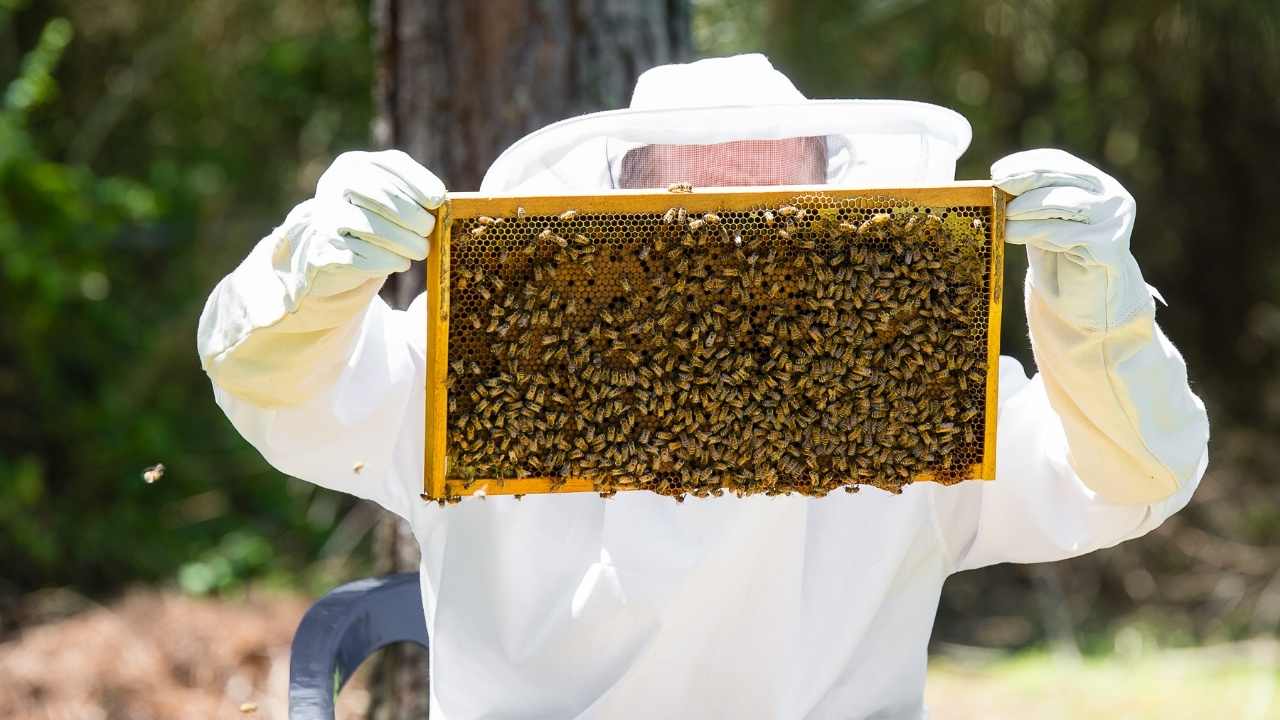
Conclusion: Beekeeping as a Sustainable Hobby and Contribution to Ecosystem Health
By connecting with others in the beekeeping community and promoting sustainable practices, we can work towards a future where our environment thrives. Beekeeping is not only an enjoyable hobby but also a way to contribute to the health of ecosystems worldwide. By maintaining healthy bee colonies, you are helping to pollinate crops and increase agricultural yield. This has a significant economic impact on local communities as it ensures that farmers have a reliable source of pollination for their crops.
Moreover, beekeeping promotes environmental responsibility by encouraging the use of natural methods for pest control and reducing the need for harmful pesticides. When you choose to become a beekeeper, you are making conscious decisions about how you interact with your environment. You become more aware of your surroundings and develop an appreciation for nature’s delicacy. By sharing your knowledge and experience with others, you help promote sustainable practices that benefit both humans and wildlife alike. Beekeeping is not just a hobby; it is an opportunity to make an impact on the world around us while enjoying its beauty at the same time.
Frequently Asked Questions
What are the different types of bees commonly kept in beekeeping?
In beekeeping, there are two main types of bees commonly kept in hives: the queen bee and the worker bees. Understanding their hierarchy is crucial for maintaining a healthy colony. The queen bee is responsible for laying eggs, while the worker bees perform various tasks such as collecting nectar and pollen, cleaning the hive, and feeding the larvae. To maintain a healthy colony, it’s important to provide them with enough food and water and to keep pests and diseases under control. Regular inspections of the hive can help detect any issues early on. As a beekeeper, you play an important role in supporting ecosystem health by providing pollination services while also taking care of your own bees through best practices for maintenance.
How do bees contribute to the pollination of different plant species?
Do you ever wonder how bees contribute to the pollination of different plant species? It’s fascinating to learn that bee pollination is responsible for over a third of global food production. Bee pollinated crops such as almonds, apples, and blueberries depend heavily on bees for their survival. However, not all plants rely solely on honeybees for pollination. Wildflowers play a crucial role in providing diverse sources of nectar and pollen that attract a variety of native bees and other insects. By promoting wildflowers in your backyard or local community garden, you can help ensure healthier ecosystems and stronger bee populations. So next time you’re tending to your beehives or planting flowers, remember the importance of wildflowers in bee pollination and the impact they have on our food system.
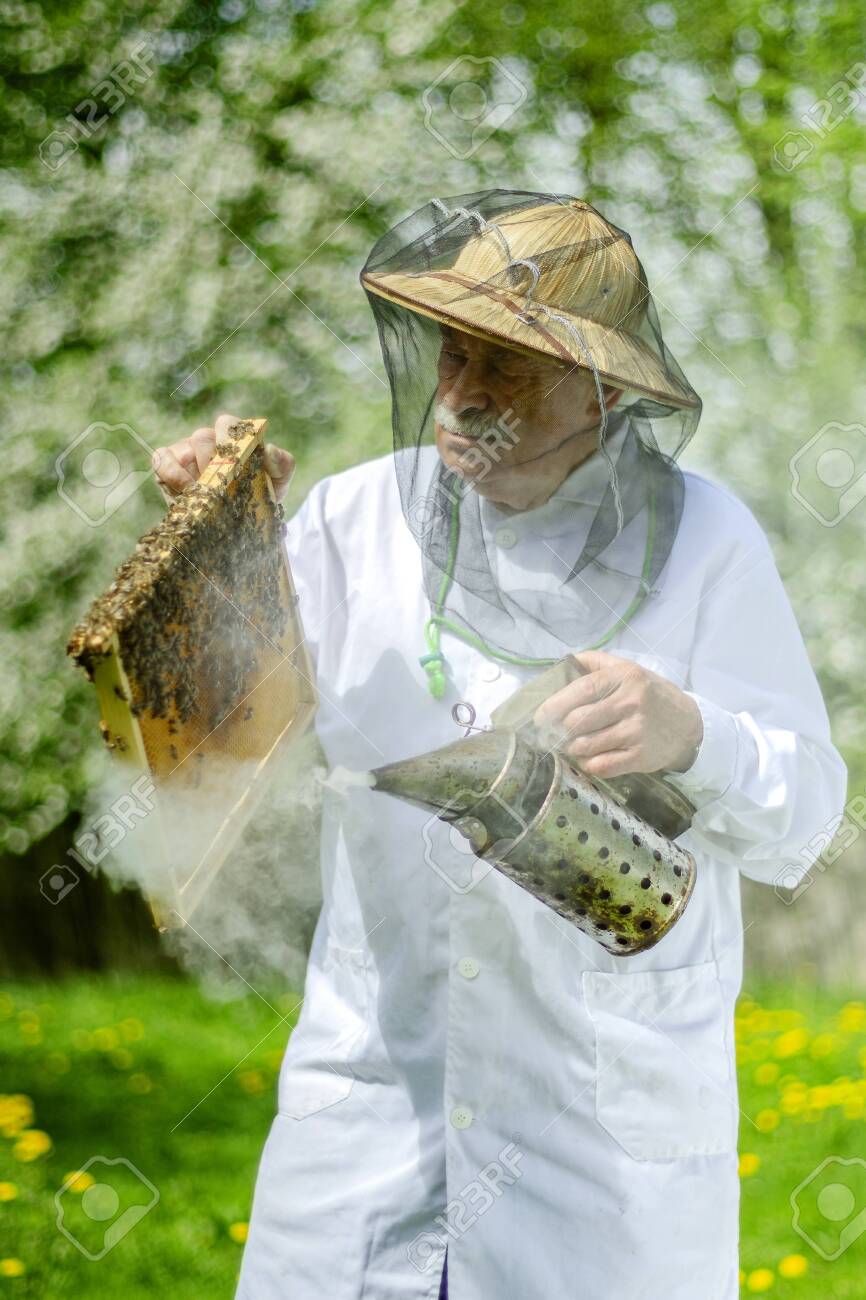
Are there any risks associated with beekeeping, such as allergies or diseases?
Allergy concerns and disease prevention are important considerations when starting a beekeeping hobby. While many people enjoy the financial benefits and market demand for honey and other bee products, it is essential to mitigate risks associated with allergic reactions or the spread of diseases among bee colonies. To prevent allergies, beginner beekeepers should wear protective clothing and gradually introduce themselves to bees through observation before handling them directly. Additionally, consistent monitoring of hive health can minimize the risk of disease outbreaks. Despite these potential challenges, beekeeping remains an exciting opportunity for those interested in serving their local ecosystem while also exploring a profitable business venture.
How can beekeepers protect their hives from predators like bears and raccoons?
Protecting your beehives from predators like bears and raccoons is crucial to ensure the safety of your bees and the success of your beekeeping hobby. Predator proofing techniques such as electric fencing, bear-resistant containers, and hive stands can help keep these animals at bay. However, it’s important to also consider humane deterrents such as motion-activated sprinklers or noise-making devices that won’t harm the predators but will discourage them from approaching the hives. One anecdote that illustrates this point is a beekeeper who installed an electric fence around their hives after losing several colonies to bears. Not only did this protect their bees, but it also prevented any harm coming to the bears who were simply looking for food. By implementing predator proofing techniques and humane deterrents, you can create a safe environment for your bees while also respecting the natural ecosystem around you.
What are some ways to use honey and beeswax besides just consuming them?
If you’re looking for new ways to use your honey and beeswax besides just consuming them, there are plenty of options available. Many people enjoy using beeswax to create DIY crafts like candles, lip balms, and even furniture polish. Honey has also been used for alternative medicine purposes such as treating sore throats and wounds. Its antibacterial properties make it a popular choice for natural remedies. Whether you’re interested in creating handmade gifts or exploring the world of natural health, there are endless possibilities when it comes to utilizing the gifts of your beekeeping hobby.
Conclusion
Congratulations, beekeeper! By taking up this hobby, you have not only found a fulfilling and rewarding pastime but also contributed to the health of our ecosystem. Bees are crucial pollinators that play a significant role in maintaining biodiversity and food production. Your efforts in supporting bee populations have far-reaching effects on the health of plants and animals alike.
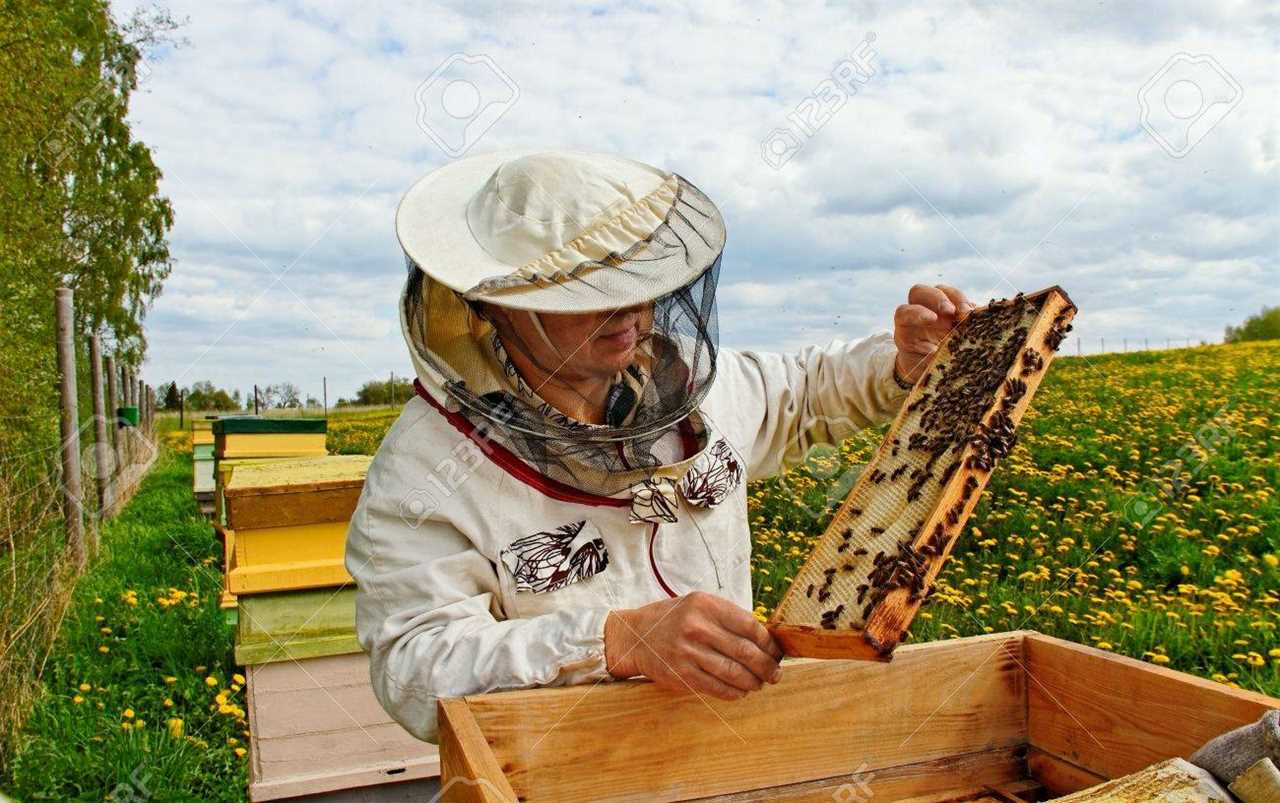
Beekeeping is more than just managing hives; it’s about being an active participant in nature’s web of life. As you tend to your bees, you’re providing them with a safe haven to thrive while allowing them to contribute to their natural environment. The benefits of beekeeping extend beyond honey production as it promotes education on sustainability practices and inspires community engagement towards environmental conservation.
In conclusion, beekeeping is a valuable hobby that offers numerous benefits for both humans and the environment. It allows us to connect with nature while contributing to the preservation of our planet’s delicate balance. Like bees who tirelessly work together for the greater good, let us continue our efforts in promoting biodiversity by taking up sustainable hobbies such as beekeeping. Let’s be like busy bees, working hard towards a brighter future for all living beings on earth!

Roger Thomas is a seasoned beekeeper and hive architect with a deep-seated passion for sustainable living. His fascination with bees has shaped his professional career, giving him practical and theoretical expertise in bee behavior, colony health, and optimal hive conditions. Roger’s technical skills shine in his bespoke hive creations that cater to the specific needs of diverse bee species, while his sustainable practices promote environmental balance and the wellbeing of the bee population.
As he continues his journey in beekeeping, Roger has become a dedicated advocate for responsible practices and an insightful educator in his field. His posts aim to inspire new beekeepers, underline the importance of sustainability, and showcase the remarkable contribution bees make to our ecosystem. Roger invites you to join him as he delves into the world of bees and the rewarding, honey-sweet art of beekeeping.
